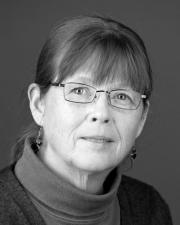
Community Excellence - Access, Success, Respect & Belonging
This content is being reviewed in light of recent changes to federal guidance
Statement on Fostering Community Excellence
The School of Architecture & Design is dedicated to supporting its community of students, staff, and faculty in their endeavours of pursuing excellence in their academic and professional lives and fostering a welcoming, safe, and respectful learning, teaching and working environment for its community. We believe that the process of design is elevated when differences are respected, ideas are shared and people are connected. We recognize that all people should have a say in the creation of their own environment.
Our goal for community excellence remains focused on the ‘Healthy and Vibrant Communities’, the second institutional priority of the Jayhawks Rising Strategic Plan of the University of Kansas. The institutional objectives for this priority area include (a) fostering an environment of access, belonging, respect, and success for all; (b) improving health and wellness of our community; (c) increasing workplace satisfaction; (d) strengthening our service to local and global communities; and (e) ensuring the institutional stewardship in student support, program expansion, and improved facilities.
As we aspire to advance the culture of community excellence at the School of Architecture & Design, we will do so within the framework laid out by the University. This task demands a collaborative approach and one that integrates culturally competent protocols and policies in our everyday ideas, thinking and practices.
To fulfill this mission, we focus on four priorities. Each priority represents objectives, initiatives, and indicators of success that are designed to achieve excellence, generate organizational change, and ensure community accountability to facilitate progress of access, success, respect, and belonging within the school. The development and execution of these initiatives is an on-going effort with regular feedback, refinement, and reallocation of resources.
1. Increaing access to design professions
Providing greater access to our academic programs for students from different backgrounds and underserved communities is needed to enrich the design professions with graduates with varied cultural and personal experinces and with different design philosophies. Growth of such a student body at the school is linked to generating awareness and interest in the design professions among high/middle school students of all communities and backgrounds. The school is also committed to build a community of faculty and staff with varied professional, personal, and cultural experiences to ensure that solving design problems of the world today is approached from multiple perspectives.
2. Ensuring community success
The school’s mission is to ensure that students receive necessary support to thrive in their education, gain necessary skills to become competent designers, develop confidence in themselves, and receive guidance for professional development. A more critical aspect of this goal is to maintain a high rate of retention of among students within their respective degree programs and to help them graduate in time. This goal could be achieved in terms of financial support and academic mentoring the students receive to address disparities and inequalities in economic and opportunity equities that they have encountered.
3. Offering learning opportunities to value broader cultural views in design disciplines
Design education as well as design professions have predominantly been Euro-centric, colonial, and patriarchal for centuries. Our studios and courses should create learning and creative opportunities that facilitate students to be informed of such biases in the social history of our design professions and design education. Designing curricula with attention to the cultural differences in design education thus means that students receive opportunities to learn about, value, and respect a broader spectrum of non-western and multicultural histories, experiences, and approaches to design the built environment, visual media, and products. They should learn how policies, practices, and products associated with design professions could be means of social discrimination, underpinned by political intentions geared toward social injustice. Students should be conscious of designing spaces, media, and products that are accessiblle and welcoming for all groups of people. Understanding the privileged status that design disciplines have in the larger society should also help students to learn about how to engage the values, needs, and views of the underprivileged in the design process.
4. Creating a welcoming place for all at the school
It is the collective responsibility of students, staff, and faculty to create a positive and supportive climate at the school. When we all are engaged in the creative activities together and we all feel valued and respected, a strong sense of belonging among all as a single school community will emerge. Feeling being included and a part of the school community is the outcome of all initiatives focusing greater access, sucess, respect, and belonging.
- Annual Summer Design Camps
- Design Workshops and Design Foundations Curriculum for high/middle school teachers
- Outreach to high/middle schools and community colleges in the region with large underserved student populations
- Collaborations with community partners such as Public-School Districts in the region, NOMA-KC, AIA-Wichita, and 20/20 Leadership Program in Kansas City for developing pipeline programs
- Mentored Architecture Scholars Program (MASP)
- Mentored Design Scholars Program (MDSP)
- Kwame Study Abroad Scholarships for African American architecture students
- Academic/Career mentoring and access to mental health counseling
- Student Success Programs such as Peer Mentoring, Portfolio Review, and Mock Interviews
- Learning opportunities with immersive multicultural experiences and community engagement
- Developing specific courses on design ethics/design justice
- Integrating content on design justice in classroom/studio activities
- Offering co-curricular activities that introduce students to discourses on design justice
- Kivett Faculty Development Fund for teaching and research into design justice in architecture
- Opportunities to develop sensitivity and awareness on issues related to fostering safe, respectful, and welcoming environment for all.
- Listening sessions with student groups, staff, and faculty
- Financial support for activities organized by student groups
- Effective faculty/staff mentoring and professional development
- Emegency Aid funding for students
- Laptop Loan Program for students
Community Excellence Alliance
The Community Excellence Alliance at the School of Architecture & Design is a group of firms that recognize the importance of fostering an environment of access, success, respect, and belonging for all at the school and have the desire to support the school’s efforts in this area.







